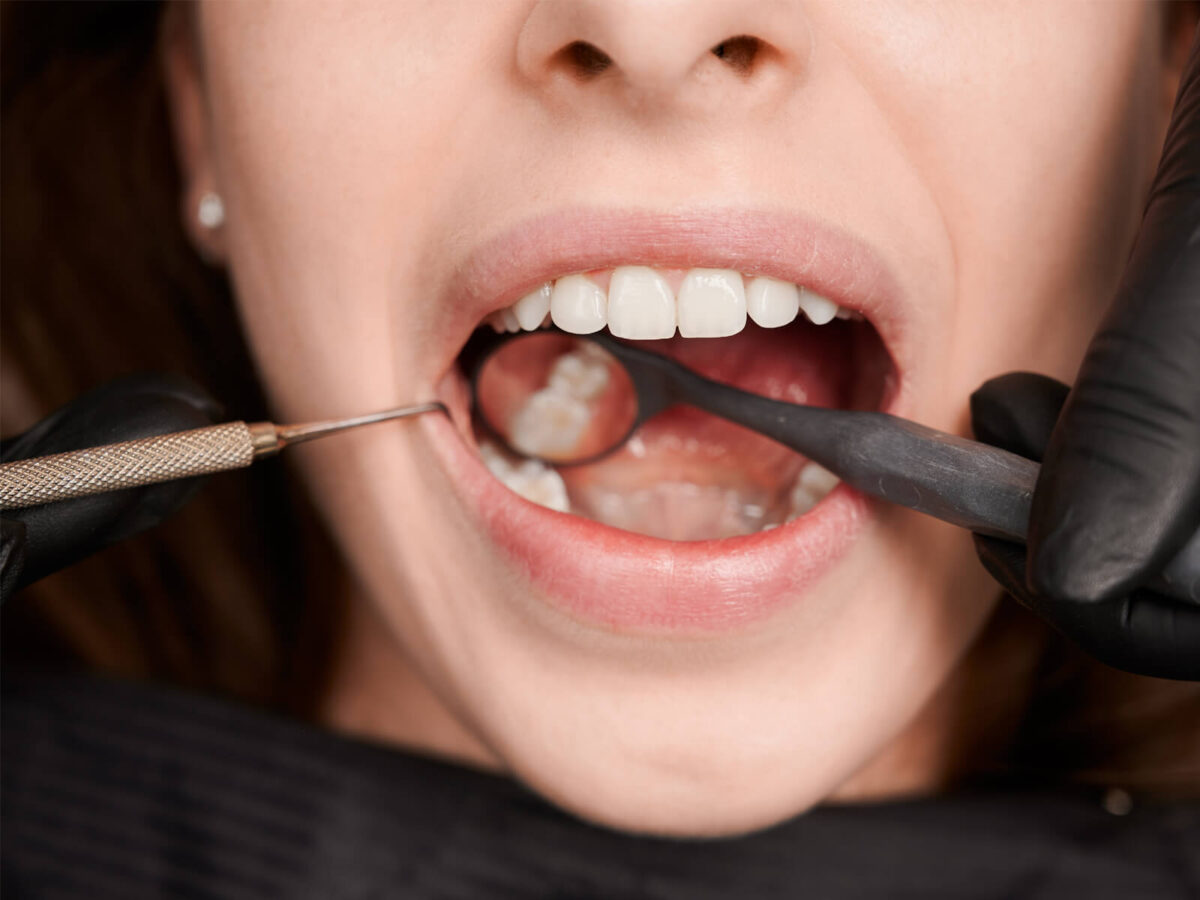Blog
Dental hygiene tips for healthy teeth & gums

Why Is My Tooth Turning Black?
The sudden appearance of a darkened tooth can be alarming, raising concerns about dental health. Discoloration is not just a cosmetic issue; it can also signal underlying dental problems. In this article, we will explore the various causes of a tooth turning black, the associated complications, and treatment options.
Causes of a Black Tooth:
Dental Decay:
- Cause: Advanced dental decay is one of the most common causes of a black tooth.
- Explanation: Dental decay occurs when bacteria in the mouth produce acids that erode tooth enamel. If decay is not addressed, it can progress, and the tooth may eventually turn black due to the accumulation of bacteria and debris.
Trauma or Injury:
- Cause: Physical trauma to the tooth, such as a fall or impact, can lead to discoloration.
- Explanation: Trauma can damage the blood vessels inside the tooth, causing internal bleeding and discoloration. Over time, the tooth may turn black or dark grey.
Dead or Dying Pulp:
- Cause: Discoloration can occur when the pulp inside a tooth dies or becomes infected.
- Explanation: The pulp contains blood vessels, and if they are damaged, blood pigments may seep into the tooth structure, darkening it. This is often associated with severe decay or untreated infections.
Medication-Related Staining:
- Cause: Certain medications, particularly antibiotics like tetracycline, can cause tooth discoloration.
- Explanation: When these medications are used during tooth development, they can bind to the tooth structure and cause permanent staining, giving the tooth a black appearance.
Genetic Factors:
- Cause: Some individuals may have a genetic predisposition to certain types of tooth discoloration.
- Explanation: Enamel thickness and mineralization can be influenced by genetic factors, altering tooth color. In some cases, hereditary conditions may lead to black discoloration.
Complications Associated with a Black Tooth:
- Infection and Abscess: A black tooth could indicate an underlying infection. If untreated, the infection can spread and lead to an abscess, causing severe pain, swelling, and the risk of systemic complications.
- Decay Spread: If decay causes the black tooth, the decay can spread to adjacent teeth if not promptly treated, potentially affecting multiple teeth.
- Structural Weakness: Discoloration due to trauma or dead pulp can compromise the tooth’s structural integrity, affecting its function. This can lead to increased sensitivity, difficulty in biting or chewing, and fractures.
- Aesthetic Concerns: A black tooth can have significant aesthetic implications, impacting a person’s confidence and self-esteem. Addressing discoloration is important to restore a natural and healthy smile.
Treatment Options for a Black Tooth:
- Dental Fillings: If decay causes the black tooth, a dental filling can be used to remove the decayed portion of the tooth and restore its structure. Fillings made of composite or amalgam can be color-matched to the natural tooth.
- Root Canal Therapy: In cases involving dead or dying pulp, root canal therapy may be recommended. The infected or damaged pulp is removed, the root canal is cleaned, and the tooth is sealed to prevent further infection.
- Tooth Extraction: In cases of severe decay, trauma, or other irreversible damage, tooth extraction may be necessary. This is often followed by replacement options like dental implants, bridges, or dentures.
- Teeth Whitening: Professional teeth whitening procedures can be effective in restoring the natural color of teeth with extrinsic stains or minor discoloration. This is often done under the supervision of a dentist.
- Porcelain Veneers or Crowns: For more severe discoloration or cosmetic issues, porcelain veneers or crowns can cover the affected tooth, restoring functionality and presenting a natural appearance.
- Preventive Measures: Maintaining good oral hygiene, regular dental check-ups, and avoiding habits that contribute to discoloration or decay are all important preventive measures.
Conclusion:
A black tooth can indicate a range of underlying issues, from decay to trauma. Early detection and treatment are crucial to prevent complications and restore dental health. If you notice discoloration in a tooth, consult a dentist promptly to determine the cause and discuss the best treatment options for your specific situation. Regular dental visits and proactive oral care are key to maintaining a healthy and beautiful smile.
